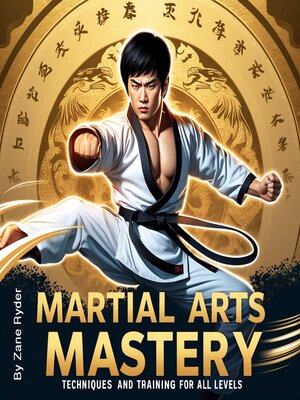
Sign up to save your library
With an OverDrive account, you can save your favorite libraries for at-a-glance information about availability. Find out more about OverDrive accounts.
Find this title in Libby, the library reading app by OverDrive.



Search for a digital library with this title
Title found at these libraries:
| Library Name | Distance |
|---|---|
| Loading... |
Martial arts have a rich history that spans thousands of years, evolving from ancient practices of self-defense and combat into a diverse array of styles and philosophies. The origins of martial arts can be traced to civilizations around the world, with evidence of early techniques and methods seen in ancient Egypt, Greece, China, and India. These practices were often closely tied to the need for survival, whether in warfare or personal defense, and they evolved as cultures exchanged knowledge through trade, conquest, and exploration.
In ancient China, martial arts were deeply influenced by philosophical systems such as Confucianism, Taoism, and Buddhism. Practices like Tai Chi and Kung Fu emerged not only as methods of combat but also as ways to harmonize the body, mind, and spirit. Similarly, in Japan, the samurai culture gave rise to martial arts such as Jujutsu, Kendo, and Karate, which emphasized discipline, honor, and respect for one's opponent. Indian traditions, particularly those rooted in yoga and ancient combat systems like Kalaripayattu, played a significant role in shaping the spiritual and physical elements of martial arts in the region.
Philosophy is central to martial arts, transcending physical techniques to cultivate a way of life. Concepts such as humility, perseverance, and self-control are core to most styles, emphasizing that true mastery lies in the refinement of character rather than in brute strength. Martial arts often teach practitioners to seek balance, both internally and externally, encouraging them to remain calm under pressure and approach conflict with wisdom rather than aggression.







